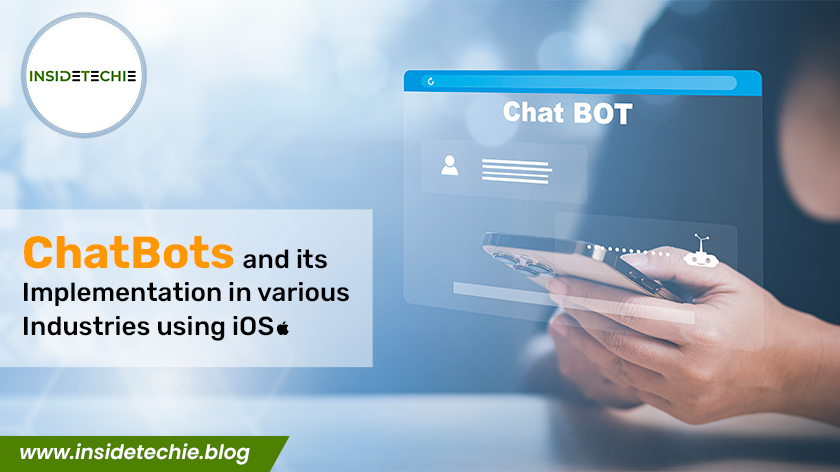Chatbots are nothing but virtual assistants, powered by artificial intelligence, and have transformed the way businesses interact with customers and users.
In this blog post, we’ll see the evolution of chatbots, their applications, and the profound impact they have had on various industries.
The concept of chatbots dates back to the mid-20th century, but it wasn’t popular until recent years, after advancements in artificial intelligence and natural language processing propelled them into the spotlight. The first chatbot, ELIZA, was created in the 1960s and aimed to simulate conversation with a Rogerian psychotherapist. Fast forward to today, and chatbots have become integral parts of websites, messaging apps, and customer service platforms.
Implementation Across Industries
1. Customer Service: Chatbots have revolutionized customer support by providing instant and round-the-clock assistance. They can answer frequently asked questions, troubleshoot issues, and guide users through various processes, enhancing overall customer satisfaction.
2. E-commerce: Many online retailers leverage chatbots to provide personalized shopping experiences. These virtual assistants can recommend products, process orders, and even assist with post-purchase inquiries, streamlining the entire customer journey.
3. Healthcare: In the healthcare sector, chatbots play a crucial role in providing information, scheduling appointments, and monitoring patient health. They contribute to improving accessibility and efficiency in healthcare services.
4. Finance: Chatbots are employed in the financial industry for tasks such as account inquiries, transaction monitoring, and even financial advice. They enhance the user experience and simplify complex financial processes.
5. Education: Educational institutions utilize chatbots for administrative tasks, course information, and answering student queries. These bots contribute to a more interactive and responsive learning environment.
Challenges and Ethical Considerations
While chatbots have made remarkable strides, challenges persist. Concerns related to privacy, security, and biases in AI algorithms need to be addressed. Striking a balance between automation and human touch remains a critical aspect of chatbot development.
Perks of using ChatBots in iOS
1. Enhancing User Engagement:
Chatbots are excellent tools for enhancing user engagement within iOS applications. Integrating chatbots into your app enables real-time communication between your app and users. This keeps users engaged and provides them with a personalized experience. Users can ask questions, seek assistance, or get recommendations, creating a dynamic and interactive app environment.
2. Customer Support and Assistance:
iOS app development services often include the integration of chatbots for customer support. Chatbots can handle routine queries and provide immediate assistance 24/7. This reduces the workload on human support agents, ensuring that customers get swift responses to their inquiries. It’s a cost-effective way to deliver top-notch customer service.
3. Data Collection and Analysis:
Chatbots excel at collecting user data and feedback. They can gather valuable insights into user preferences, behaviors, and pain points. iOS app development companies can leverage this data to refine and optimize their apps. Understanding user needs is crucial for developing apps that resonate with the target audience.
4. Personalization and Recommendations:
Chatbots can analyze user data to offer personalized recommendations. Whether it’s suggesting products, content, or services, chatbots can significantly enhance the user experience. Users feel more valued when they receive tailored suggestions, increasing their engagement with your iOS app.
5. Streamlining Workflows:
In business-focused iOS apps, chatbots can streamline workflows by automating tasks. For example, in project management apps, a chatbot can schedule meetings, assign tasks, and provide status updates, saving users valuable time.
6. Language Support:
Chatbots break language barriers in iOS apps. They can offer support in multiple languages, expanding your app’s reach to a global audience. This is particularly valuable for iOS app development companies aiming for international markets.
7. Marketing and Promotions:
Chatbots are effective tools for running marketing campaigns within iOS apps. They can send personalized promotions, gather feedback on marketing strategies, and even facilitate sales through the chat interface.
8. Continuous Improvement:
The data collected by chatbots can be used for ongoing app improvement. iOS app development services can analyze user interactions with the chatbot to identify areas for enhancement and innovation, ensuring that the app stays competitive and user-friendly.
The Future of ChatBots
As technology continues to evolve, so will chatbots. Integrating them with emerging technologies like augmented reality (AR) and virtual reality (VR) is on the horizon, promising even more immersive and engaging user experiences. Additionally, the development of emotionally intelligent chatbots capable of understanding and responding to human emotions is an exciting avenue for exploration.
In Conclusion
The journey of chatbots from rudimentary conversational agents to sophisticated virtual assistants is a testament to the rapid progress of artificial intelligence. Chatbots have undoubtedly transformed the way we engage with technology, and their future promises even more exciting possibilities on the digital frontier. In the ever-evolving iOS app development landscape, chatbots have emerged as essential tools for enhancing user engagement, providing stellar customer support, collecting valuable data, and streamlining workflows. If you’re an engineer, integrating chatbots into your projects can be a game-changer, offering a competitive edge in the market. By leveraging the power of chatbots, you can create iOS apps that meet and exceed user expectations, driving business success in the digital age.












